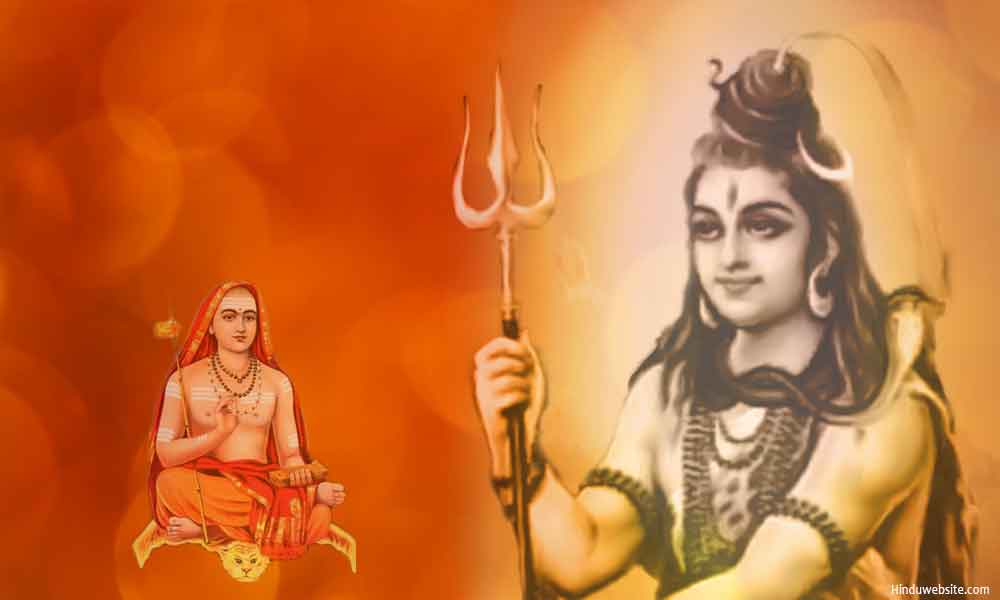
Sadhana Panchakam, Instruction 40

Index | Intro | 1 | 2 | 3 | 4 | 5 | 6 | 7 | 8 | 9 | 10 | 11 | 12 | 13 | 14 | 15 | 16 | 17 | 18 | 19 | 20 | 21 | 22 | 23 | 24 | 25 | 26 | 27 | 28 | 29 | 30 | 31 | 32 | 33 | 34 | 35 | 36 | 37 | 38 | 39 | 40 | Read with Kindle Unlimited |
5.8 Then, become established in the transcendental Self
The ultimate goal of all spiritual sadhana is to transcend the egoistic self and become established in the supreme self. In that effort you progress from the state of duality and division into the state of nonduality and oneness. It is beautifully described in the Brihadaranyaka Upanishad as the progression from untruth to truth, darkness to light, and mortality to immortality. In the Sadhana Panchakam very appropriately the highest goal itself is mentioned as final instruction. A yogi who reaches it requires no further instruction. He becomes the teacher (guru), the source of knowledge.
This instruction can be translated in two ways and both are correct. The first one is may you establish yourself in the supreme self. The second one, may you establish the supreme self in you. The ultimate purpose in either case is the same, attaining oneness. Brahman and your pure self are not separate entities. Truly, there is no pure-self other than Brahman. Both represent the same ultimate reality which is one and only. For our convenience we refer to them as individual self and supreme self. However, in Advaita Vedanta, we consider the individual self to be a mere illusion.
The self is para Brahma only, the transcendental supreme Self. It is not an entity like God, but the ultimate and absolute reality, whose essential nature is pure consciousness. The same self which pervades and envelops the whole creation just as space also exists in you as your pure self. The self is neither the mind and body nor the material universe. They exist in him but it does not exist in them because they are its projections or creations and do not possess its essential nature.
Paramatma is your true self, your very essence, true identity and ultimate reality. There was no time when he was not you, and at no time in future he will cease to exist as you. Para Brahma has always been your true self. In the ignorant state of individuality, you do not know it because due to the play of maya your essential self, which is pure consciousness remains hidden in you amidst the tattvas and a cloud of impurities. Because of them, you develop attachments and delusion and become established in your ego and identify yourself with your physical nature and limited self rather than your pure, transcendental self.
Our ordinary consciousness is subject to four states namely the wakeful state, the dream state, the deep sleep state and the transcendental state. It is only in the transcendental state which is beyond your mind and senses, you experience nonduality or oneness with the supreme Brahman. The transcendental state is the same as the ultimate reality of Brahman. As the seeker of liberation, your primary goal is to bring that consciousness into the remaining three states and become firmly and uninterruptedly established in it.
A liberate yogi (jivanmukta) does not experience oneness with Brahman only when he practices deep meditation and enters the supreme state of self-absorption (samadhi). Having awakened into that supreme state he remains forever connected to his highest self. The awareness that he is Brahman himself never departs from him. Others who have not yet reached that supreme state but are engaged in the practice of yoga should also hold the thought firmly in their minds so that at some points it becomes an uninterrupted reality.
As Ashtavakra suggested, burning down the forest of ignorance with the fire of the conviction that you are the supreme Self whose nature is pure consciousness and bliss and upon which the universe appears as super imposed like a snake upon a rope, you shall live happily established in that awareness. The jivas are caught in the body consciousness which keeps them bound to the world. With the sword of knowledge that he is pure and infinite consciousness, a yogi has to severe links with his beingness and remain absorbed in himself.
Suggestions for Further Reading
- Ashtavakra Samhita Translation and Commentary
- The Wisdom of the Bhagavadgita
- The Wisdom of the Upanishads
- 22 Minor Upanishads
- Shiva Sutras, The Aphorisms of Shiva
- The Yoga Sutras - A Brief Summary by Chapter
- Atmabodha - Knowledge of Self
- Yoga Vashisht, The Abridged Version
- Gitanjali - By Tagore
- Confucian Analects
- The Garuda Purana
- How To Remain Steadfast on the Spiritual Path
- Famous Quotations on Spirituality
- Basic Spirituality for Worldly People
- How To Find Peace Within Yourself
- The Self or Soul As Pure Consciousness
- Self-knowledge, Difficulties in Knowing Yourself
- Moksha or Liberation in Hinduism
- Types of Knowledge or Jnana in Hinduism
- Essays On Dharma
- Esoteric Mystic Hinduism
- Introduction to Hinduism
- Hindu Way of Life
- Essays On Karma
- Hindu Rites and Rituals
- The Origin of The Sanskrit Language
- Symbolism in Hinduism
- Essays on The Upanishads
- Concepts of Hinduism
- Essays on Atman
- Hindu Festivals
- Spiritual Practice
- Right Living
- Yoga of Sorrow
- Happiness
- Mental Health
- Concepts of Buddhism
- General Essays